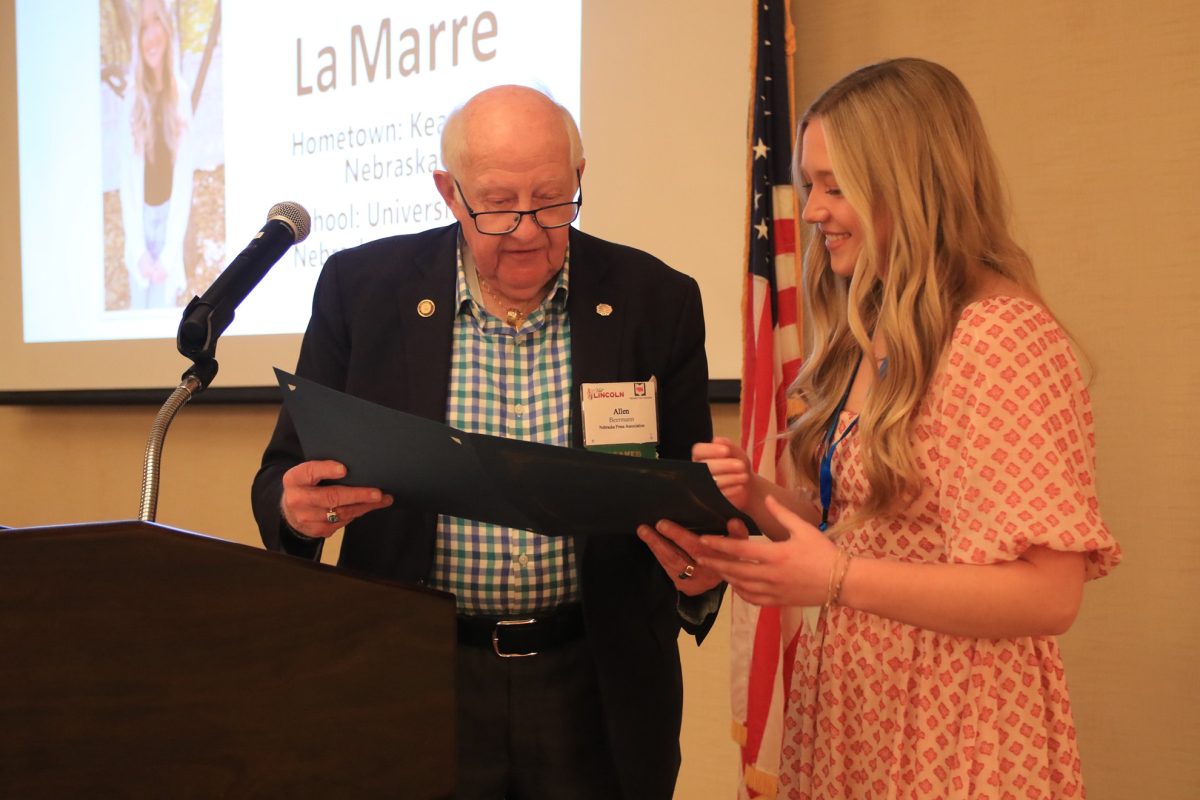delgadosandovals@lopers.unk.edu
Impostor syndrome is a pervasive issue that many college students face, and it can manifest in various forms. It impacts academic performance, mental health and overall well-being.
This psychological pattern is defined as when individuals doubt their accomplishments and have a persistent fear of being exposed as a “fraud.” Impostor syndrome can leave us feeling inadequate despite evidence of competence.
College represents a significant shift from high school. It is a competitive environment where the expectations are higher and the stakes feel greater. This can trigger feelings of inadequacy, especially if we are surrounded by peers who seem more knowledgeable or confident.
Many entering college hold themselves to high standards, believing they must excel in every aspect of their academic and social lives. This perfectionist mentality can make even minor setbacks feel like failures.
There is always a constant feeling of doubt and incompetency when facing a task or solving an issue creeping in.
Many students entering college hold themselves to high standards, believing they must excel in every aspect of their academic and social lives. This perfectionist mentality can make even minor setbacks feel like failures, reinforcing the notion that one is never as capable as our peers.
For marginalized groups, impostor syndrome can be intensified by the pressure to represent their communities in spaces where they are underrepresented. The feeling of being “the only one” in a room can heighten self-doubt and create a fear of letting down not only oneself but also their peers and family.
Oftentimes I find myself doubting whether my education in high school was good and robust enough to prepare me for college. It feels as if everyone around me is more capable and more intelligent than I am. Talking to my friends, I realized that I was not the only one feeling this way.
When experiencing impostor syndrome in the past, I have felt a range of emotions, including anxiety and fear of being discovered as a fraud which has affected my social interactions.
In the past, I have questioned my abilities, downplayed my achievements and felt undeserving of my successes. There is a belief that we are alone in our struggles, which prevents us from seeking support, making us feel even more isolated and disconnected.
This high pressure environment has led to exhaustion for me. I overwork myself in an effort to validate my self-worth.
In an age of social media and comparison there is a constant bombardment of curated representations of our peers’ lives, showcasing achievements, celebrations and seemingly effortless success. Impostor syndrome facilitates a constant pattern of comparison.
In the past, my feelings of inadequacy have been reinforced by a belief that I do not measure up to my peers.
The pressure to achieve not just academically but also socially and personally can contribute to these feelings. Many feel the need to excel in multiple areas — extracurricular activities, internships and social circles—which can lead to feelings of being overwhelmed and inadequate.
While the feelings associated with impostor syndrome can be overwhelming, there are effective strategies to combat it.
The first step is to acknowledge the feelings. Recognizing that impostor syndrome is a common experience is incredibly validating. Many successful individuals have shared similar feelings, and understanding this can help normalize the experience, allowing us to feel less isolated in our struggles.
































